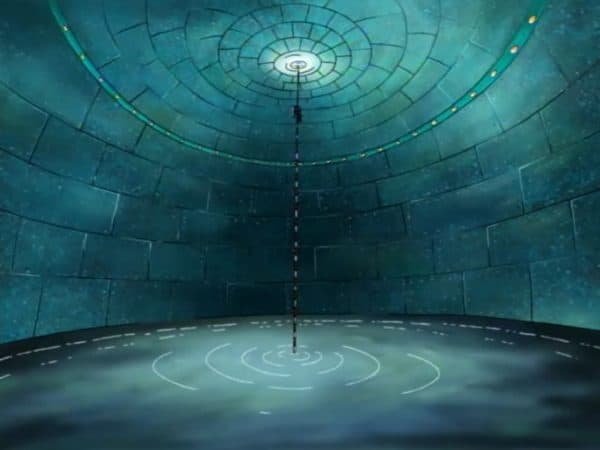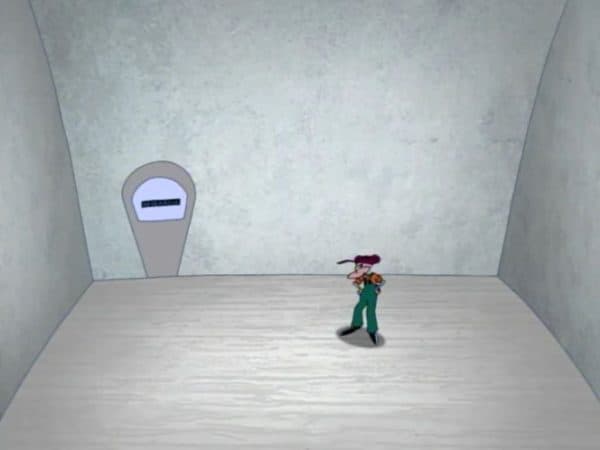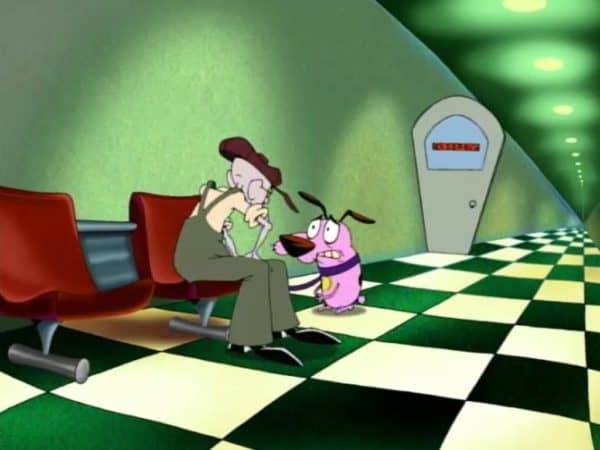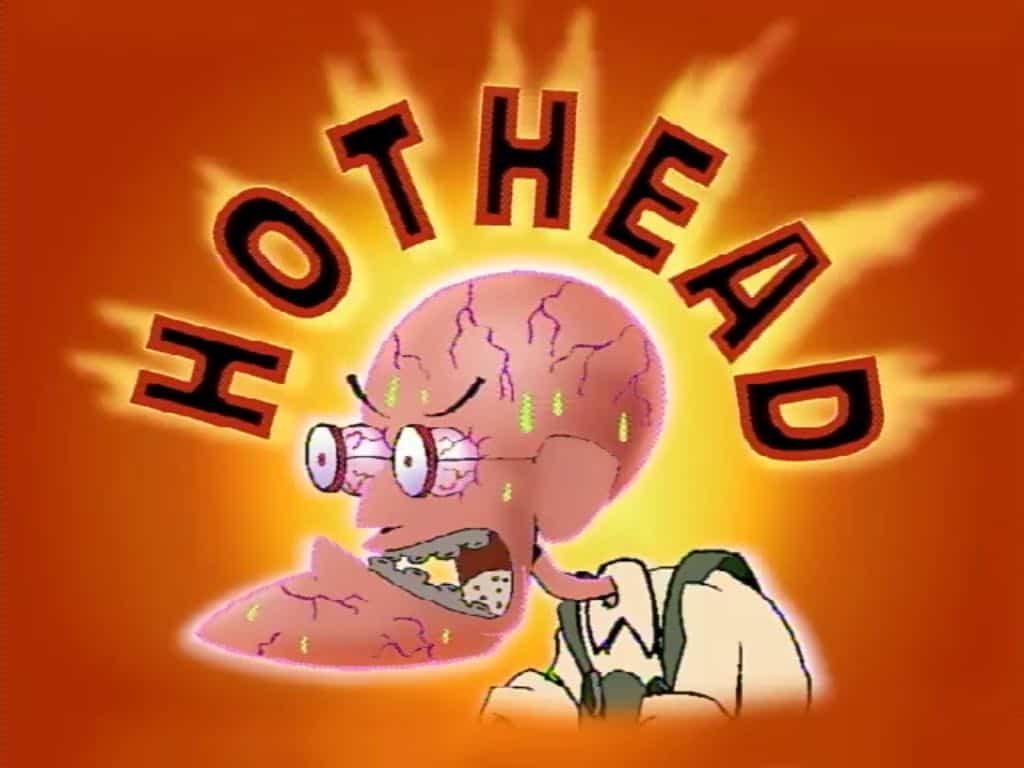The “Hot Head” episode of Courage The Cowardly Dog owes much to the Jekyll & Hyde trope. We can probably go back further than that, to Cain and Abel.
For more on twins in literature see here.
See also: A History Of Other Selves.
STORY STRUCTURE OF “HOT HEAD”
This is a story in two distinct parts.
- Courage sees what happens to the old man in the toilet when he applies the hair growth lotion.
- We all see what happens later to Eustace when he applies the same lotion. This time the audience knows exactly what’s going to happen. The interest comes from how Courage is going to deal with it.
The horror element of this story comes from real life drug abuse, but is handled here in a completely comedic way.
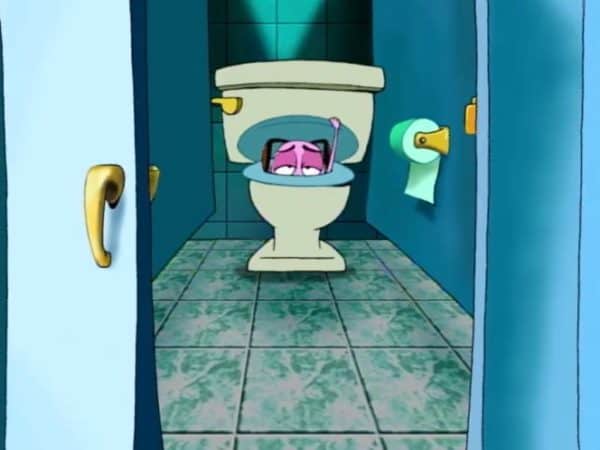
SHORTCOMING
Courage is only the dog so is unable to really help his family when he sees things going terribly wrong.
Eustace’s shortcoming (among many others) is that he is vain. It is the shortcoming of Eustace that drives the story.
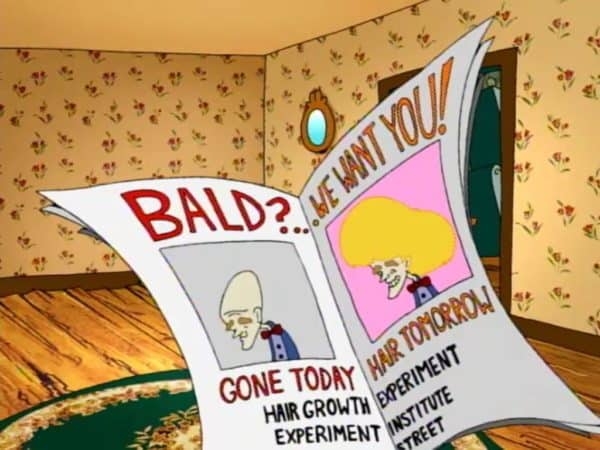
DESIRE
Courage wants to stay home with Muriel and definitely not have a haircut.
Eustace wants hair.
OPPONENT
The main opponent in this episode is Eustace.
As for Eustace, his main opponent is the doctor who prescribes him this lotion. In this story with fantasy elements, there are two tracks. There’s the literal fantasy story and then there’s the real life analogue. Certain illicit drugs are well-known to cause angry outbursts. The cultural phenoemnon adult viewers will think of is, of course, use of anabolic steroids among the athletically inclined.
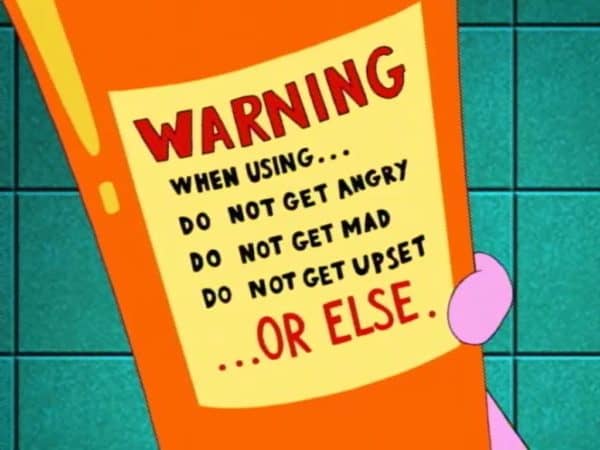
The Asian guy is introduced in this episode. He will appear later as a main opponent. In this episode he cuts Eustace off, which is the first time Eustace blows his top.
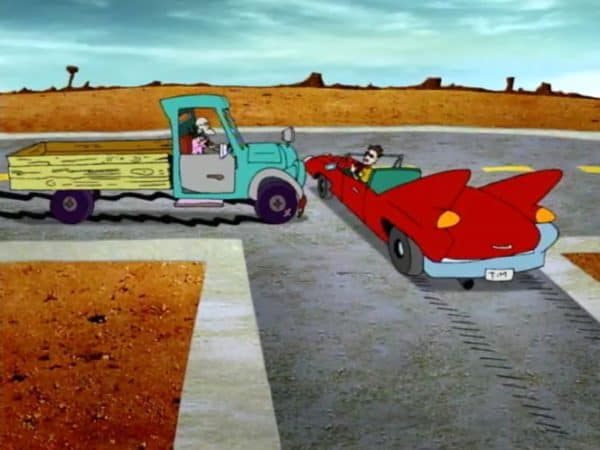
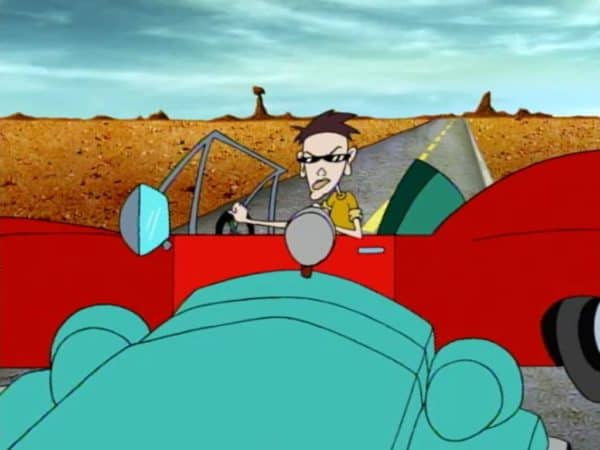
PLAN
Courage knows exactly how angry Eustace is going to get. Once home, his main aim is to keep Eustace calm so he doesn’t hurt Muriel. The first thing he always does, even though it NEVER works, is try to alert Muriel.
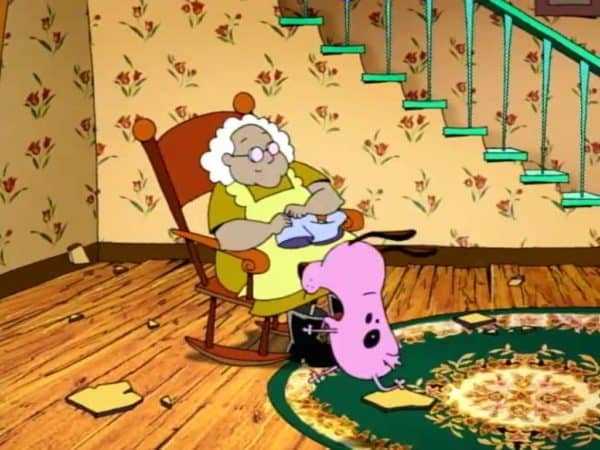
He massages Eustace’s feet
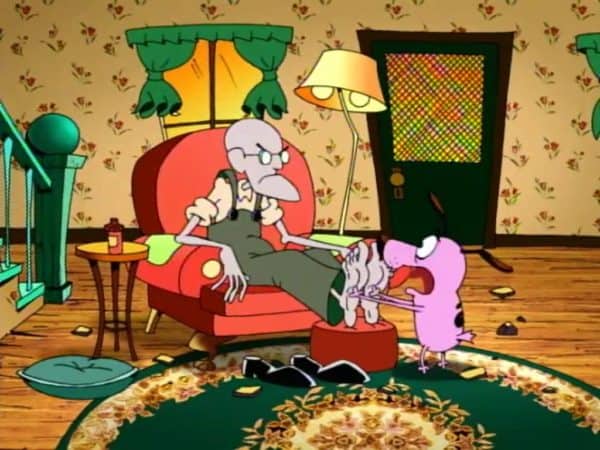
He plays the harp
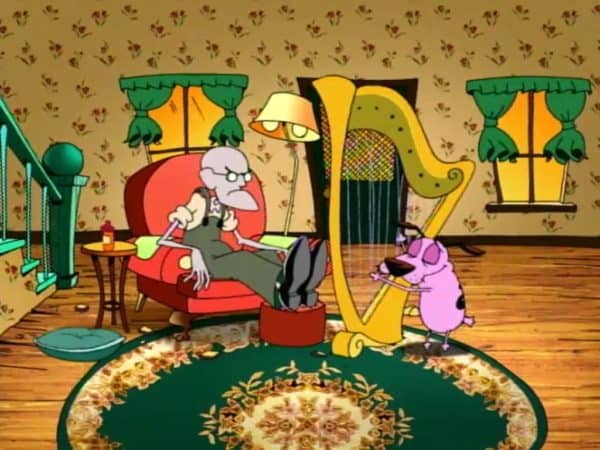
Here he is coaxing Muriel out of the kitchen, where she has asked him to open a container of dog food (which is impossible to open).
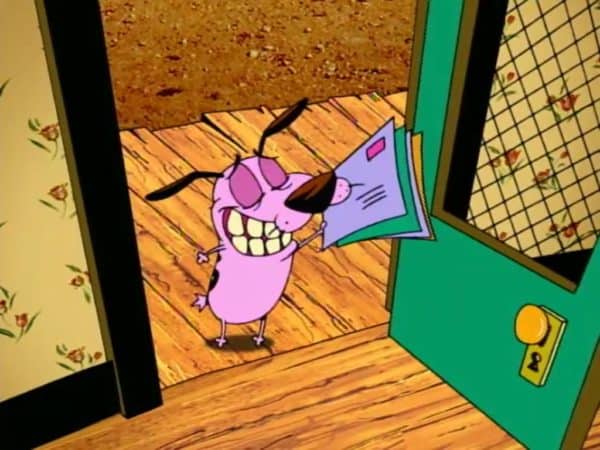
BIG STRUGGLE
For this sequence of the story the writers have taken a variety of irritating everyday tasks: fixing a squeak in a chair, getting a lid off a jar, threading a needle, which the (adult) audience will identify with.
This sequence is an up-and-down roller coaster ride in which Eustace is about to blow but then something calms him down. For instance, he is happy that he has sprouted a curly hair, then let down to find it falls flat in front of his face.
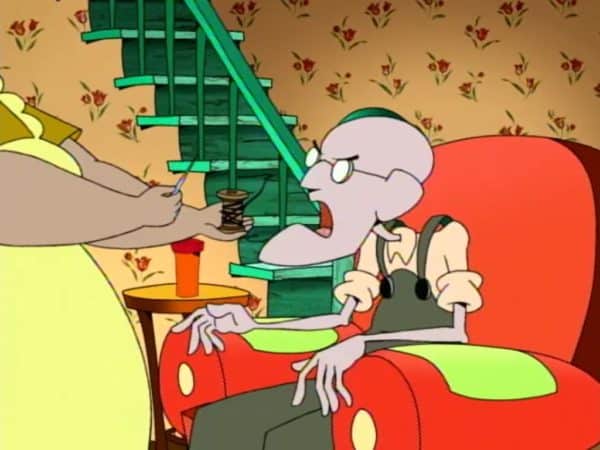
This roller coaster story structure is reflected in an earlier part of the plot, in which the dodgy, unseen doctor subjects Eustace to a variety of harrowing rides reminiscent of a roller coaster at a theme park before determining whether Eustace would benefit from the lotion.
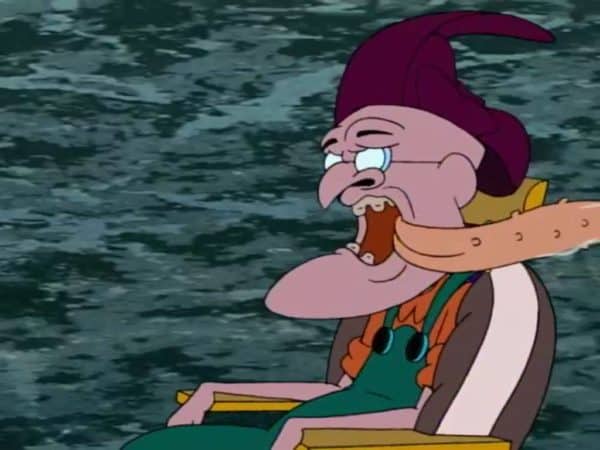
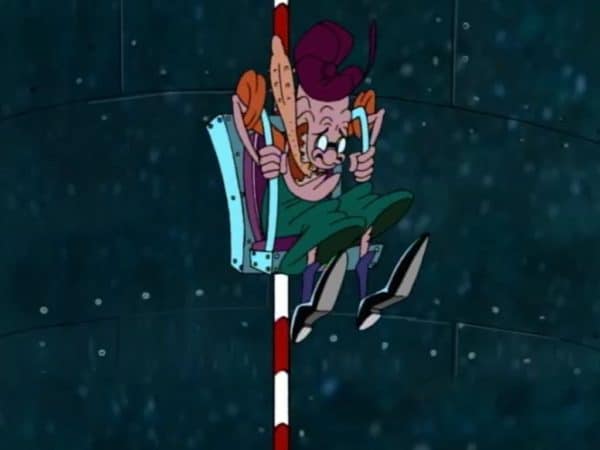
These things make Eustace so angry that his anger ends up blowing up the house.
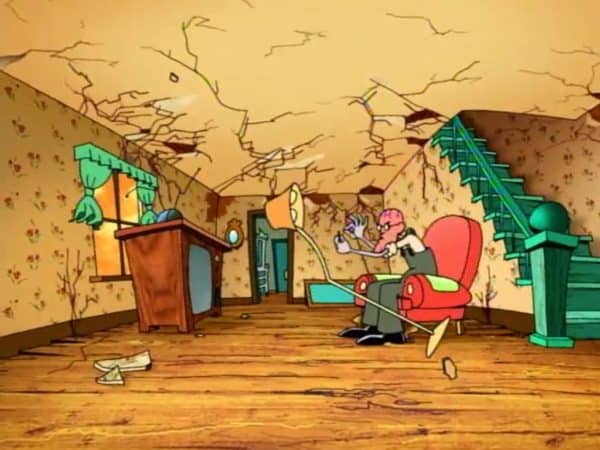
This was foreshadowed in the men’s toilet inside the doctor’s tower. Unlike Eustace, this little old man was very polite to begin with. We see him rather comically thanking the doctor, over and over again, unable to end the conversation. If this nice little old man can react like the Incredible Hulk with a few drops of this lotion, we know the permanently cantankerous Eustace is going to react even worse.
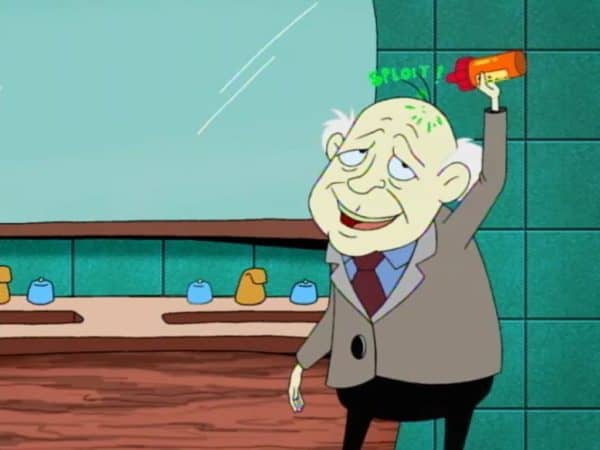
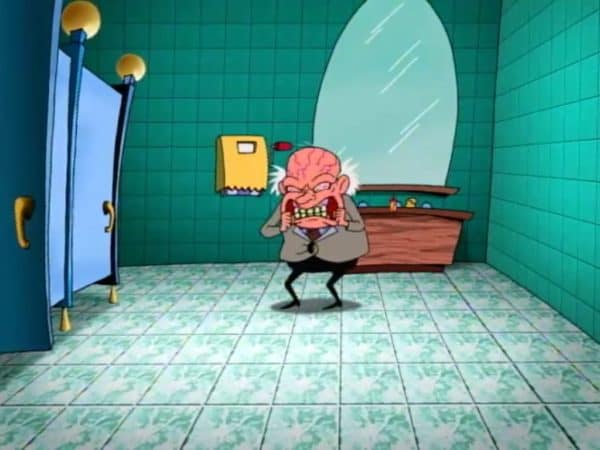
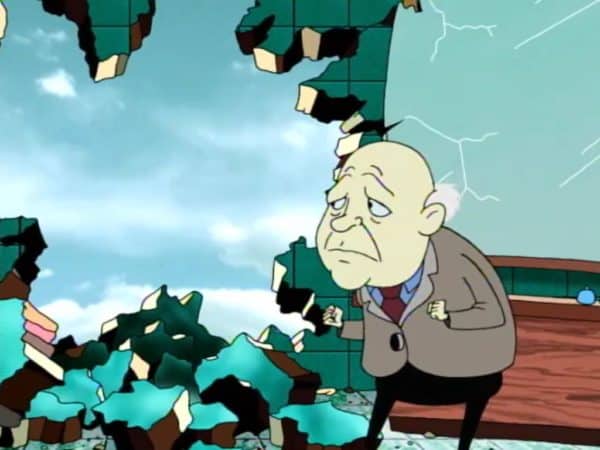
SELF-REVELATION
This story structure is unusual because, due to the double story structure, we know what’s going to happen early on.
For more on types of plots most frequently found in children’s stories see this post.
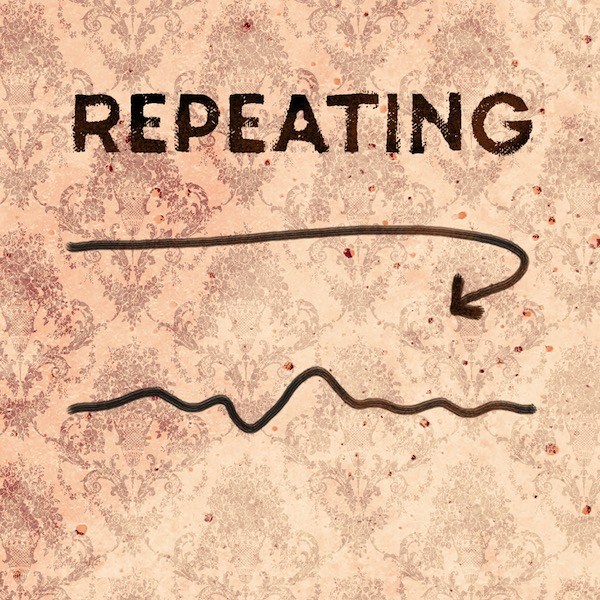
NEW SITUATION
In a wonderful example of Muriel’s signature litotes/obliviousness, the entire house is blown up around them and still Muriel worries about the squeak in her chair.
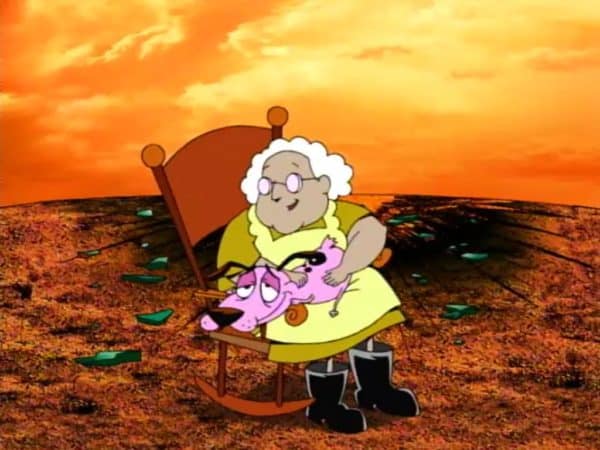
OTHER OBSERVATIONS
The Windmill
In the previous story I wondered if the windmill was a symbol for mysterious ‘change’ about to happen.
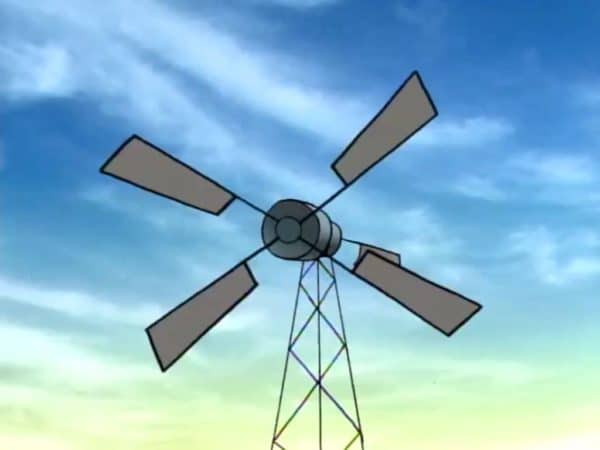
The windmill in this episode is used first as a scene transition and at first I thought that’s all it was until I saw it again, this time blown up along with the house. I realised at that point that the windmill blown up looks very much like the hairs that sprouted from the bald men.
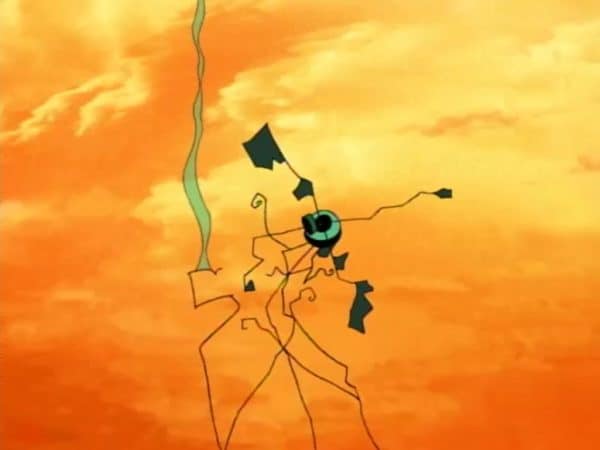
The Tardis Effect
The doctor’s office is in a long, thin castle. We never see a fullscreen view of this castle. Instead, the camera pans up until the tower tapers out into what looks, symbolically, like a single strand of hair.
In children’s stories, the outside view of a house belies a much bigger interior — much like the tardis of Dr Who. A picturebook where this is done is Oliver by Birgitta Sif.
Inside this tall skinny castle we have a mansion right out of Bluebeard.
